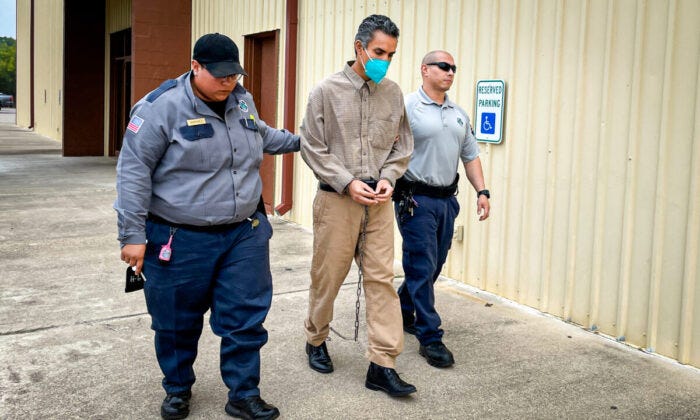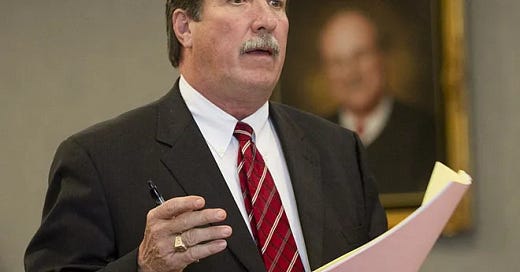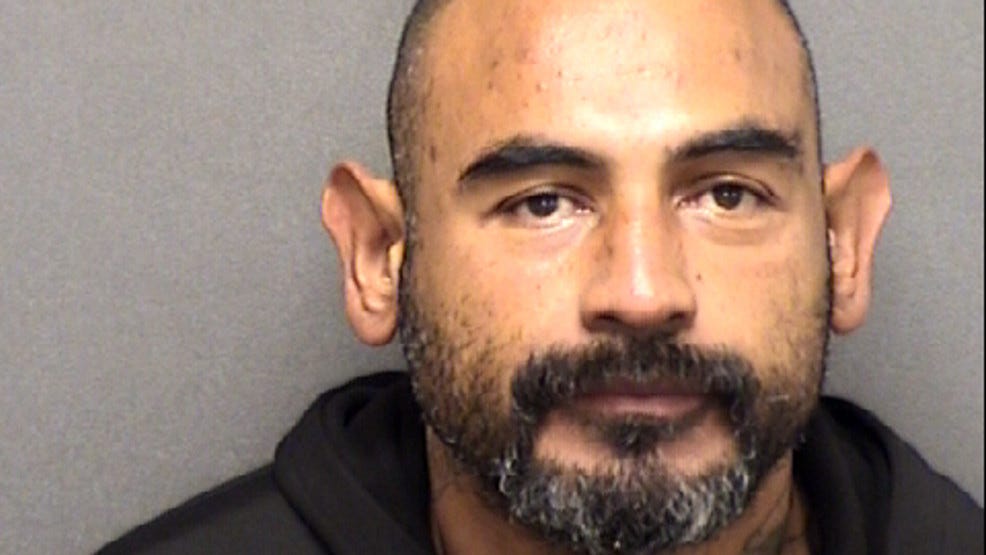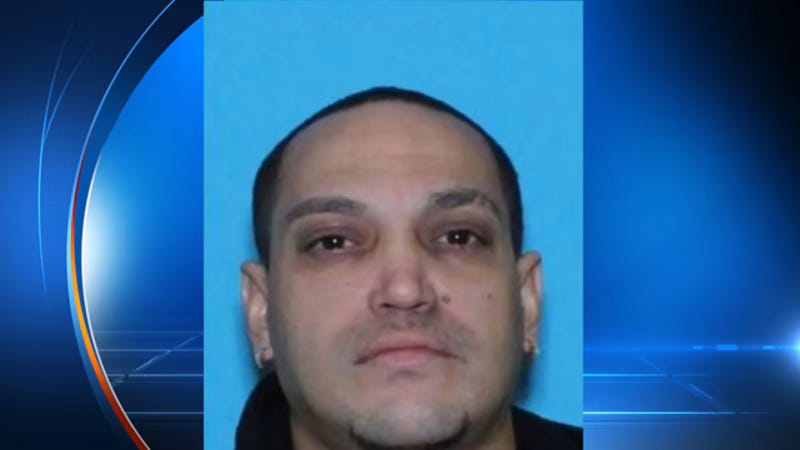Bail Bonds, Infant Formula, and Us, You, Me, and We
Fridays are the Days News is Supposed to Die On
Good Morning Friends,
If you’d told us Monday, that Friday was going to possibly be the busiest news day of the week, we would have laughed in your face. Generally speaking, governments and corporations save Fridays for “sinking” bad news— trying to slip it by folks who are busily preparing for their weekends.
But here we are.
Firstly, don’t miss this latest piece from the Texas Tribune, and Operation Lone Star Correspondent Jolie McCullough, hot off the digital press, posted 1 hour ago as we type this.
Ms. McCullough is technically their criminal justice reporter— they have several others also reporting on Operation Lone Star and Immigration in general, but for our money here, they ought to add OLS onto her list of specializations.
The piece is focused on the intake of bail bond money being put up by illegal aliens being held for trespassing, and the perception that Kinney County has been scheming to confiscate it.
Like anything, the devil is in the details. The piece leans heavily upon suppositions from defense attorneys and activists, but also University-level legal experts. It also relies heavily upon the assumption of bad intentions in local government, even as it allows newly hired Assistant County Attorney Tony Hackebeil to explain certain changes in County policy about bail bonds in OLS cases.
We should point out, Hackebeil is well-known in some legal circles, having worked as an Assistant DA in Bexar County, and 14 years as the DA in Uvalde and Real Counties.
This all may sound pejorative— as though we are criticizing the Tribune’s piece for assuming bad intentions in government— but we actually believe that it is generally best for journalists to operate in such a fashion. By and large, journalists should assume bad intentions in capital-g Government. Somewhat adversarial relationships between the press and Government should be the norm, in order for the press to properly operate in its capacity as a watchdog and the unofficial fourth estate of Government.
It can make things uncomfortable for local governments to justify actions that might be getting willfully misinterpreted in some quarters, but that’s all part and parcel of things, and part of the obligation to have a clear and transparent process.
As they say, sunlight is the best disinfectant.
More than $2 million in bond funds are now sitting in a Kinney County bank account, according to the sheriff’s office and a roster of migrant arrestees obtained by The Texas Tribune. Technically, the money still belongs to family members and supporters who handed over cash to get migrants out of state prisons, but county officials have taken steps that make it difficult for some to get that money back.
Those putting up cash for loved ones are being required to sign away their right to recover the money. Local judges are trying to make defendants attend court in person to qualify to get cash back, even if they’ve since been deported. And for money to be returned, the onus has been put on the migrant to pursue it in court.
—Jolie McCullough, Reporter, The Texas Tribune
To expand on this, we note that the bank account being referenced is something like an escrow account. The bail bond money in question is being held separately from other county funds— no mingling, no casual withdrawals. No withdrawals at all, really.
The process of actually seizing or forfeiting bail bonds is quite involved, requiring a lot of legal steps to go through. We’ve had people explain it to us a couple times, but our eyes and ears may’ve glazed over. Suffice to say there are numerous administrative dance steps to go through in such a tango and there so far hasn’t been enough bandwidth in the Courthouse to even begin trying to seize such funds, while also clearing the backlog of cases that remains present.
“The bottom line is we have individuals who put up thousands of dollars to get their loved ones out of custody as they’re entitled to under the law,” said Amrutha Jindal, the chief defender for Operation Lone Star with the Lubbock Private Defenders Office. “And even if their loved one followed all the rules of the court and did exactly what they were supposed to do, they haven’t gotten their money back, and that’s really disturbing.”
—Jolie McCullough, Reporter, The Texas Tribune
Amrutha Jindal, by the way, is the attorney replacing Philip Wischkaemper with oversight of defense for OLS trespassing cases. Longtime readers may recall, he’s the head of the Lubbock Private Defenders Office, presently subject to ethics complaints, for allegedly trying to force defense attorneys to convince OLS clients to stay in jail against their own wishes as a way to somehow clog the courts. The whole thing’s a confusing mess— you can see our previous coverage here:
We point it out, because we remain concerned that this aspect of the story is being lost track of, with little-to-no coverage in statewide publications like the Dallas Morning News and Texas Tribune.
Realize, that while Kinney County has received about $3.1-million dollars in OLS Funding, the Lubbock Private Defenders Office has seen more than $10-million dollars in tax money get steered its way by the Texas Indigent Defense Commission. Additional amounts have been steered to Texas RioGrande (sic) Legal Aid, which performs similar functions as the LPDO.
So, while Kinney County is indeed an organ of the state and deserving of close scrutiny in the way all state bodies are, there is an argument to be made that organizations such as the LPDO and TRLA may be functioning as defacto state bodies, and are equally deserving of the same sort of suspicion and scrutiny that would be in place if they were in fact state bodies instead of private operations that are supported by tax monies.
Civil rights groups are particularly incensed by a new county policy that runs counter to typical bond arrangements, and which they argue is illegal and criminal. Texas statute requires that funds be returned to the person who put up the bond — be it a family member, friend or attorney — or, if no one has a receipt, to the defendant.
But Kinney County is now requiring those posting bond for migrant defendants to sign a form waiving their right to the money. Brent Smith, the county’s prosecutor for misdemeanors, said the money instead will be returned to the defendant himself. A majority of men who bonded out have since been removed from the country by immigration officials, however, and the county clerk said he will not mail funds out of the country.
A San Antonio attorney working for Smith told the Tribune the civil rights groups have misinterpreted the policy, which he said is meant to ensure that the defendant and the poster don’t both try to claim the money after a case is resolved. The waiver makes it so cash by default will only go to the defendant, but he said a migrant can ask the court for permission to release it to someone else.
“It is certainly not done that way in order to hamper their ability to get the bond back,” the attorney, Tony Hackebeil, said. “The only reason it’s done that way is to ensure that the bond will be returned to the right person.”
The Texas Fair Defense Project and the American Civil Liberties Union of Texas have condemned the waiver as a way to keep people from taking back money owed to them. Late last month, the civil rights groups sent a cease-and-desist letter to the county.
“While the waivers themselves are facially invalid and unenforceable, even the act of having people sign such waivers — especially family and friends desperate to get their loved ones out of prison — can dissuade them from seeking to recover money that they are rightfully entitled to when criminal cases are resolved,” the civil rights groups said.
Hackebeil conceded the county could probably get rid of the waiver, but would still need a way to make sure multiple people don’t try to claim the same bond returns.
Lawyers have also blasted the county for setting jury trials requiring defendants to show up in person, even if they were removed from the country, setting up the bond to be forfeited for failure to appear in court. Several such trials scheduled for this week were canceled by an appellate court after attorneys complained their defendants would not be able to attend their own trials. The local court had refused to halt the trials.
—Jolie McCullough, Reporter, The Texas Tribune
Now might be a good time to talk a little about certain difficulties that have cropped up in the bail bond process, that may or may not have some bearing here. We are aware of a couple of times that apparently illegal aliens have been ripped off while trying to post bond.
Many times, what happens is that family members in Mexico or Central America will raise money to get their loved one out of jail. For various reasons, including ignorance, they will be hesitant to register at a Port of Entry, for the purpose of entering the US to pay bail money in a legal proceeding, and instead will rely upon an informal network of friends of friends who may be in the country already. Many times, this will result in someone with a green card, or other legal status in the US acting as an unofficial “bail bond agent” for several different unrelated families as word gets around that someone’s primo or prima is doing this for people.
Well, sometimes, these individuals will just take the money and run— returning phony paperwork to people in Mexico or elsewhere, saying that the bonds have been paid and the deal is done. Meanwhile, nothing of the sort has happened, and families and their loved ones in lock up are left none the wiser.
It’s rare. But it has happened in at least one instance that we know of personally, where someone locked up in Dilley was able to raise enough hell about it that authorities investigated and discovered the phony paperwork and deception.
Bad business all the way around. Has it been common? No. But, how many times does something like that need to happen before authorities might feel it necessary to “tighten up” on things?
In any event, we recommend reading the entirety of Ms. McCullough’s piece, which, contrary to impressions perhaps, we largely applaud for those reasons stated up at the top of the newsletter.
Also, don’t miss her piece on the recent court proceedings in Kinney County, which we mentioned in our last dispatch.
One element of her reporting that leapt out at us, was the plight of the defendant, 39 year old Honduran Lester Hidalgo Aguilar.

At some point during a stay in Mexico, before illegally coming to the U.S., Aguilar was apparently targeted and victimized by the Cartels, who chopped off his pinky finger.
It’s hard not to feel sympathy for yet another victim of the raging lawlessness that continues to boil and churn in Mexico these days.
However— that said, Americans need to realize there are tons of people in the USA, today, getting victimized in similar fashion by the Cartels. It’s just quieter. No one is steering millions of dollars in tax money to legal U.S. resident victims of the cartels.
Remember this guy?
That’s a San Antonio-area man who was caught in Kinney County, and wound up getting linked to the cold case murder of a Puerto Rican named Javier Soto in San Antonio, whose remains were beheaded, and hands chopped off to prevent identification.
Here’s the victim’s photo— Javier Soto.
He was 43 when he was killed. Before coming to Texas, he worked in a factory in Pennsylvania. A supervisor there said he was a good employee and a nice guy— something his family back home in Puerto Rico also said.
Must’ve been a hard worker— we’ve seen our share of rural Pennsylvania factories. They suck. But, being from Puerto Rico, nobody was going out of their way to make it easy for poor Javier. It’s certainly possible he had some kind of illicit contact with the Cartels, but authorities in San Antonio haven’t said so.
Police have stopped short of calling the murder cartel related, because good luck proving it beyond a shadow of a doubt, but let’s be real: Chopping off hands and heads is an almost certain sign of cartel involvement and activity anywhere, let alone a major U.S. City more than 120 miles away from the border. And it didn’t happen yesterday— cold case, remember? It was 2016.
We bring this up to underline the fact that we don’t have to import people with Cartel horror stories. We have cartel horror stories happening all the time right here at home— no importation required.
It would be better to eliminate this perception that illegal immigration is a simple and easy alternative to whatever difficulties one might have at home. It is this perception that creates a steady supply of victimizable customers for the cartels in the first place.
Now lets talk about baby formula.
There’s a national shortage of liquid formula that’s been well documented the last several days in national press, describing empty store shelves and frantic parents who are watering down what they have, and even in some cases turning to goats milk for their babies.
A few days ago, Radio talk show host Brian Craig tracked the shortage back to Federal Government mass purchases of formula, for distribution to illegal aliens on the Southern border.
Wild stuff. Especially because it now seems to be true, with whistle blowers and now even Texas Governor Greg Abbott jumping on board, slamming the Feds for prioritizing illegal aliens over U.S. Citizens.
It’s a bad look, for sure— but one somehow doubts that the Federal Government was meaning to shortchange U.S. babies. It seems much more likely that someone made a short-sighted mass buy, and didn’t even consider the possibility that there might not be enough to go around.
Not enough to go around. That’s a hell of a phrase isn’t it? Something to think about, really. This is the USA, for God’s sake. How on earth is there not enough to go around, of anything?
Well, here we are.
Can’t see a doctor? Not enough to go around.
Can’t find a cheap place to live in a place you like? Not enough to go around.
Why is the cost of wood so high? Not enough to go around.
We could do this all day. And in some cases it might even be a simple fact , and not just the result of artificialities in the system like shortsighted mass-buys by the federal government.
How much of this border stockpile of formula is going to wind up getting wasted, anyway? Pitched out and thrown away, because they bought more than they needed?
Did they buy more than they need? Less? Who the hell knows.
Immigration activists are firing back at the Governor— asking if he thinks the Feds should just let poor illegal alien babies starve to death.
Obviously no one wants that.
It shouldn’t have to be said.
But. If one has to choose, between feeding the babies of U.S. citizens, and feeding the babies of non U.S. citizens, and spending taxpayer money to do so… well… that’s a frightful calculation that while difficult should only go one way.
What a disaster U.S. Immigration policy has become, that we are even forced to consider who should be getting formula and who should not.
The sun is up. It’s past time we should be getting ready for the day, and having this newsletter in your inboxes.
Now is perhaps a good time to mention a milestone that almost slipped past unnoticed.
We’ve apparently put out our 100th newsletter somewhere along the way here. A big thank you to everyone that’s been here for the whole ride, and also to those who’ve joined us more recently.
We hope it’s been occasionally informative or at least sometimes entertaining, even if only to shake the head at certain esoteric digressions like our recent discussion of the ouroboros and how it pertains to Texas property taxes.
Keep reading, we’ll keep writing. Can’t imagine a simpler contract than that.
As always this newsletter and any opinions or errors contained within are entirely our own, and should not be mistaken for any statements of belief or indications of policy by the Kinney County Sheriff’s Office which employs us.
Have a great day and a better weekend, we’ll be back again soon.
Despite the negative tone of current events it remains a great time to be alive and in South Texas. The weather’s hot, and the food is delicious. Love your pets, hug your family, and keep on smiling. We’re all going to make it.
And, as Texas Jewboy Kinky Friedman is fond of saying, may the God of your choice bless you, even if they ain’t making Jews like Jesus anymore.






Very informative and well written. Thank you.
Edited to make one small correction, the TIDC is actually the Texas Immigrant Defense Commission, not the Texas Immigrant Defense Council. The person responsible for this error cannot be sacked.